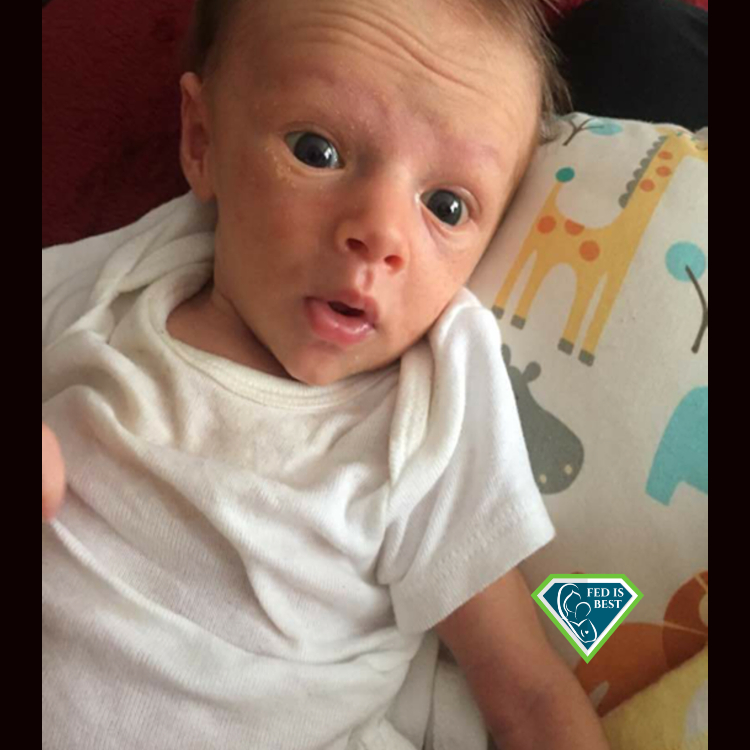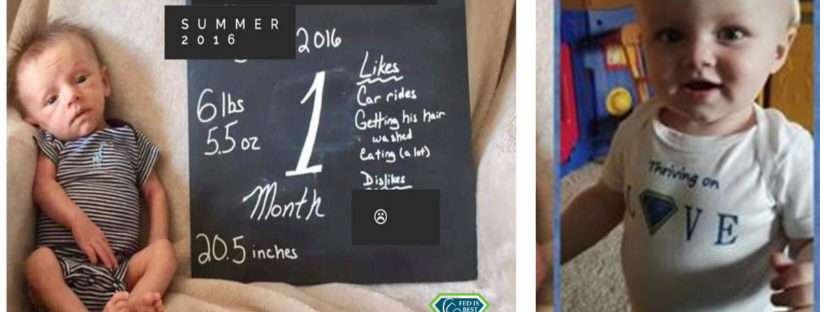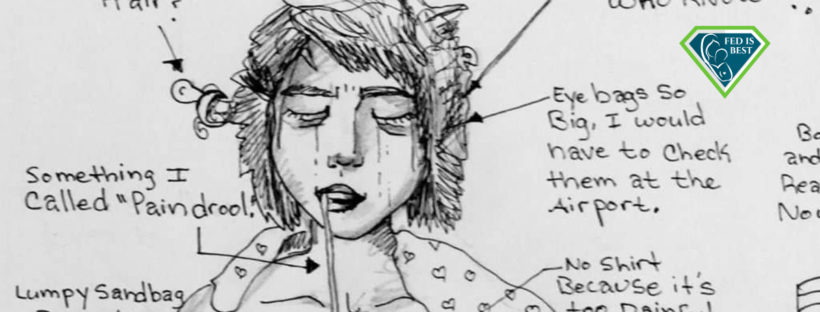By Mandy Dukovan, MS, MFT, Marriage and Family Therapist, Fed is Best Foundation Senior Advisor
It’s incredibly hard to put into words all the things that The Fed Is Best Foundation has done for me over the past year. I stumbled upon the Foundation when I noticed a friend of mine “liked” one of their blog posts. I was a first-time mom who was struggling with many different feelings and wasn’t sure who or where to turn to. My son was two months at the time and was just beginning to thrive after I began supplementing him with formula. While I was so happy to see my baby finally gaining weight and thriving, I had haunting memories and raw emotions that I struggled to sort out. I had immense guilt that I didn’t see the signs that my baby was hungry, which tortured me non-stop. I was embarrassed to look at his 1-month picture and now see that he was obviously malnourished, but how on earth did I miss this at the time?

1 Month Old
I was angry that I didn’t follow my instincts that something was wrong with him and was angry that I believed all the terrible things I was told by lactivists that would happen to him if I gave him a drop of formula. I worried that we would not have the kind of bond that babies who were exclusively breastfed (EBF) experienced with their mothers. I now know our bond is much stronger because we bottle-fed him and no longer experienced the immense stress that came each time I tried to breastfeed my baby. I got to a point where I dreaded even trying to breastfeed him, but I was told that was the best thing I could do for my baby, so I kept going at the expense of my baby’s health and my well-being. I honestly believed I was the only mother who had experienced what we went through because I only heard the stories about how amazing and natural breastfeeding was, and every mother could breastfeed if only she tried hard enough.
Since I am a therapist, I knew I needed to share my story. I found courage in my strong desire for other babies and mothers not to struggle. I also found courage in the fact that I needed a reason for all of the suffering—I needed to know that Brock’s struggle was not in vain. I kept telling myself, “If I reach even one mother and prevent even one baby from suffering like Brock, then I have to do this.”




